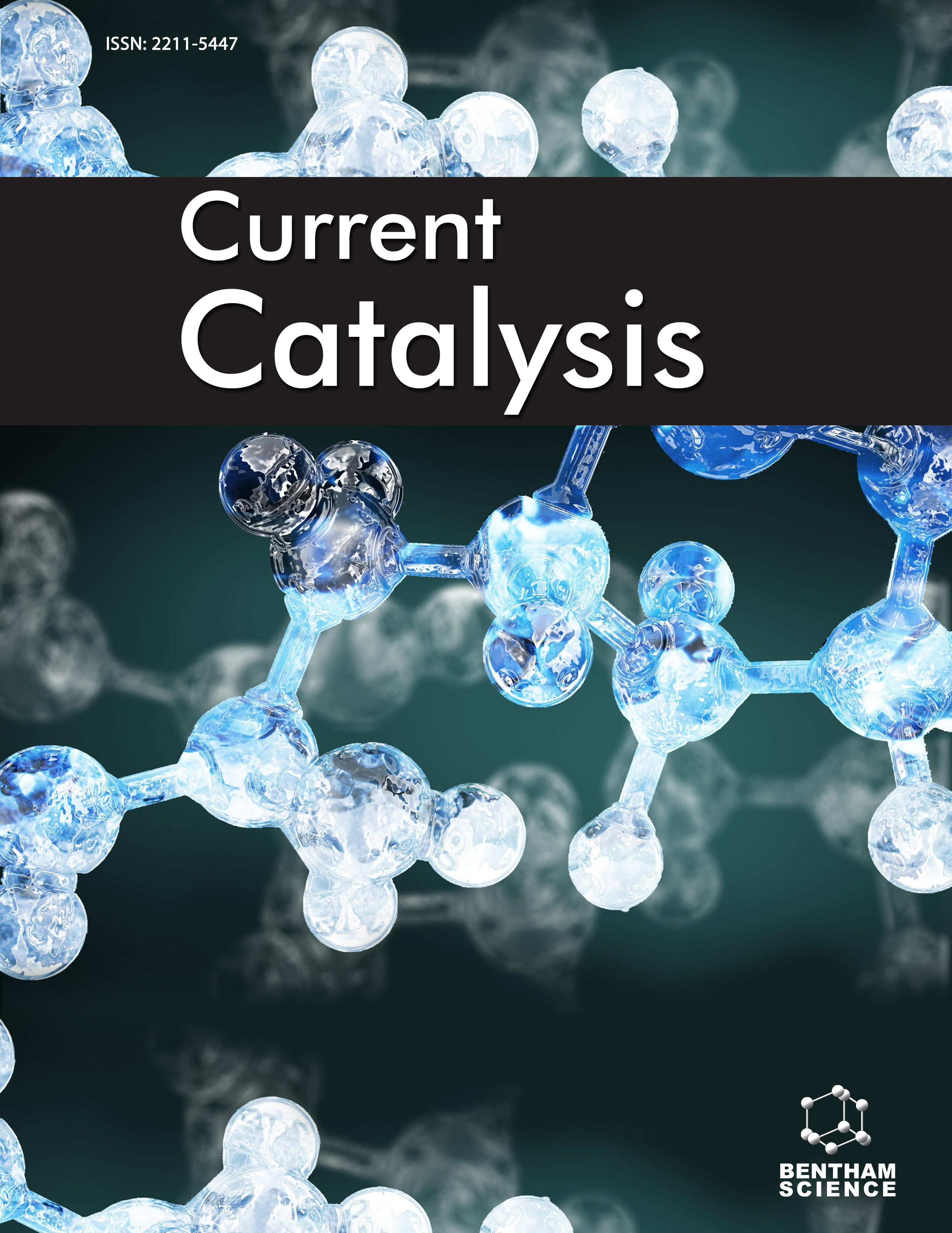-
s New Insights in the Development of Carbon Supported Ruthenium Catalysts for Hydrogenation of Levulinic Acid
- Source: Current Catalysis, Volume 7, Issue 2, Aug 2018, p. 129 - 137
-
- 01 Aug 2018
Abstract
Background: Ruthenium catalysts supported over various carbon materials differing in the nanostructure, grade of graphitization and surface area values have been synthesized and used in the hydrogenation of levulinic acid (LA), biomass platform molecule, in aqueous media. Methods: The prepared Ru catalysts were characterized by temperature programmed reduction (TPR), transmission electron microscopy (TEM) and CO chemisorption coupled with microcalorimetry. The reduced catalysts were studied in a batch reactor and in continuous-flow reactors at 100ºC under 40-50 bar hydrogen pressure for the hydrogenation of LA. Results: A linear correlation between turnover frequency (TOF) for LA conversion and Ru particle size was found in the 1.2-2.9 nm range. TOF increasing with the decreasing Ru particle size, which suggests hydrogenation of LA is a structure-sensitive reaction on Ru nanoparticles. Reduced graphite oxide (rGO) supported Ru catalyst with the lowest metal particle size (1.2 nm) also showed high activity at ambient temperature. Remarkably, this catalyst also displayed high stability in a continuous-flow reactor at 40 bar hydrogen and 100ºC. Conclusion: The improved catalytic performance (activity, selectivity and stability) of the carbon supported Ru catalyst (Ru/rGO-700 sample) for the LA hydrogenation reaction is attributed to the low metal particle size (1.2 nm) obtained over the high surface area and non-acidic rGO-750 carbon support.


